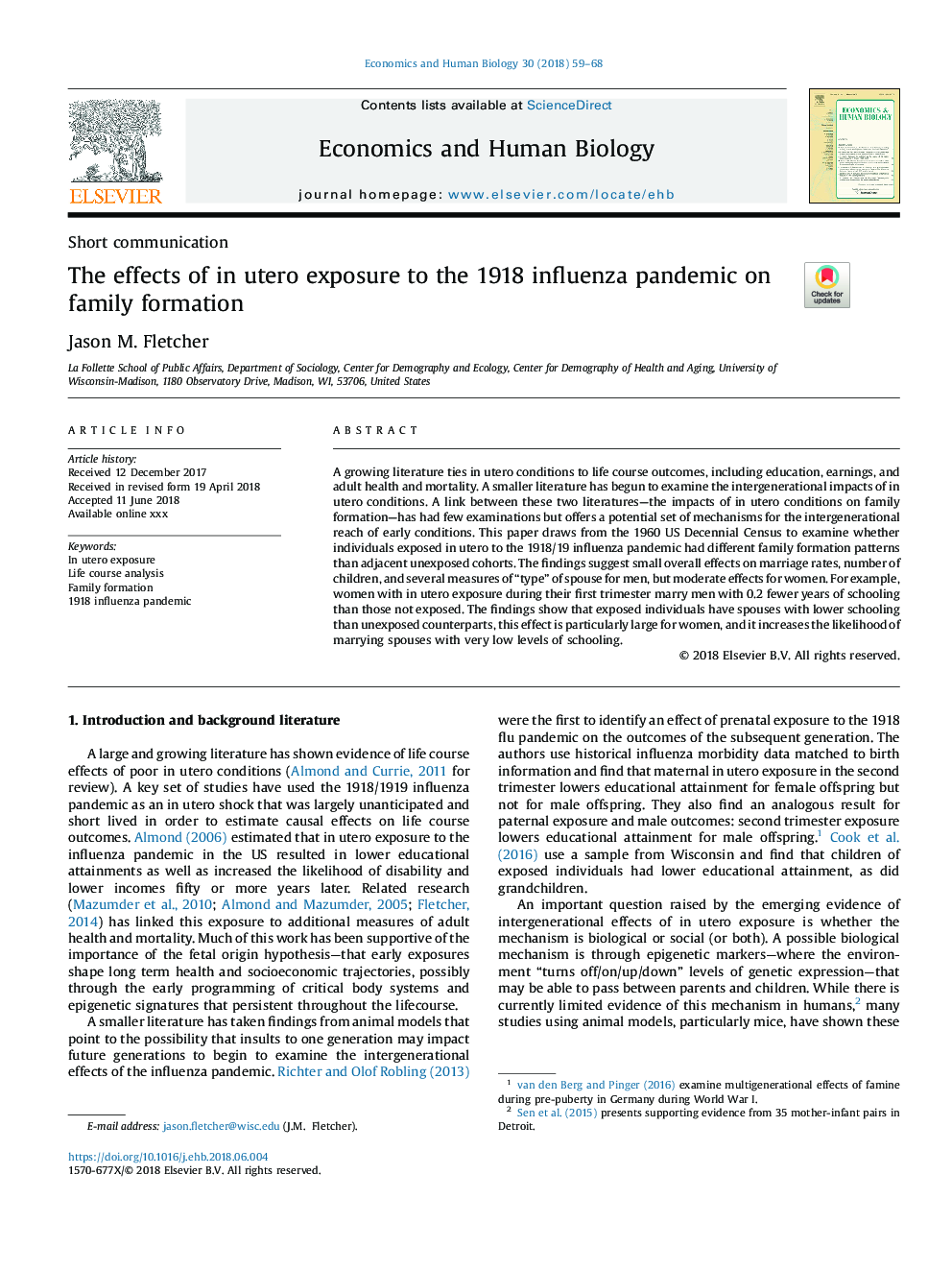| Article ID | Journal | Published Year | Pages | File Type |
|---|---|---|---|---|
| 7348108 | Economics & Human Biology | 2018 | 10 Pages |
Abstract
A growing literature ties in utero conditions to life course outcomes, including education, earnings, and adult health and mortality. A smaller literature has begun to examine the intergenerational impacts of in utero conditions. A link between these two literatures-the impacts of in utero conditions on family formation-has had few examinations but offers a potential set of mechanisms for the intergenerational reach of early conditions. This paper draws from the 1960 US Decennial Census to examine whether individuals exposed in utero to the 1918/19 influenza pandemic had different family formation patterns than adjacent unexposed cohorts. The findings suggest small overall effects on marriage rates, number of children, and several measures of “type” of spouse for men, but moderate effects for women. For example, women with in utero exposure during their first trimester marry men with 0.2 fewer years of schooling than those not exposed. The findings show that exposed individuals have spouses with lower schooling than unexposed counterparts, this effect is particularly large for women, and it increases the likelihood of marrying spouses with very low levels of schooling.
Related Topics
Life Sciences
Agricultural and Biological Sciences
Agricultural and Biological Sciences (General)
Authors
Jason M. Fletcher,
